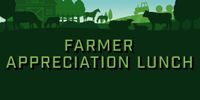The Canadian Roundtable for Sustainable Beef (CRSB) released its second and highly anticipated National Beef Sustainability Assessment (NBSA) and Strategy report. The assessment reflects three years of in-depth scientific analysis and highlights the Canadian beef sector’s progress between 2014 and 2021 on sustainability indicators like greenhouse gas emissions, biodiversity, carbon storage, people’s health and safety, animal care, economic contributions and more. The report also includes accompanying sustainability strategies that identify areas for continuous improvement.
The report was completed as part of over $2.8 million in funding for the CRSB under the Government of Canada’s AgriAssurance Program - National Industry Association Component, an initiative under the Sustainable Canadian Agricultural Partnership.
Key environmental Improvements include a 15 per cent reduction in greenhouse gas emissions to produce 1 kg of beef (boneless and consumed) since 2014. This improvement is largely attributed to increased efficiencies of cattle growth, leading to a smaller overall carbon footprint as fewer resources (e.g. land, water and feed) are required to produce the same volume of beef. “It’s exciting to see the 15 per cent reduction in GHG emissions intensity, which puts us on track to achieve the 33 per cent reduction 2030 goal that the industry has set,” says Ryan Beierbach, Chair of the CRSB and Saskatchewan beef producer.
The report also shows that land used for beef cattle production is estimated to store 1.9 billion tonnes of soil organic carbon, and with overall loss of habitat, Canadian beef farmers and ranchers play an important role in preserving intact critical habitat wildlife need for reproduction and feeding.
“I am proud of the Canadian beef industry’s commitment to continuous improvement, and the progress already made on our sustainability journey. This assessment demonstrates the important role Canadian beef producers and our members play in advancing sustainability, and what we can accomplish when we work together towards common goals,” Beierbach adds.
A peer-reviewed scientific paper highlighting the Environmental Life Cycle Assessment results has been published in the Canadian Journal of Animal Science1.
Key Findings
- Producing 1 kg of beef (boneless and consumed), now creates 15 per cent less greenhouse gases than in 2014 (Aboagye et al., 2024), on track towards the 2030 Canadian beef industry goal of a 33 per cent emissions intensity reduction.
- Land used for beef production is estimated to hold 1.9 billion tonnes of soil organic carbon, storing nearly 40 per cent of the total soil carbon across Canada’s agricultural landscape. This is equivalent to annual CO2 emissions from over two billion cars (~58 cars for every Canadian).
- Land used for beef production contributes the majority of critical habitat that wildlife needs for both reproduction (74 per cent) and feeding (55 per cent) when all of Canada’s crop and pastureland is considered. Despite an overall loss of wildlife habitat on Canada’s pasture and cropland, beef’s share within what remains has increased, demonstrating the importance of beef production in keeping these areas intact.
- The conversations around farmer stress and mental health have grown louder, increasing awareness. Work continues to reduce the stigma of mental health challenges across the beef supply chain.
- Animal care continues to be a top priority for the Canadian beef industry. Surveillance data shows no risk of resistance from Category I antimicrobials (very high importance to human medicine) indicating that tools to treat sickness in beef cattle is not a risk to human health.
- Demand for Canadian beef remains strong with Canadian consumers (up five per cent) and around the world (16 per cent increase).
- For every worker employed by farm-level production of cattle in Canada, 2.5 workers are employed either directly or indirectly in the Canadian economy. And for every worker employed in the Canadian meat packing industry, another 3.4 workers are employed, including direct and indirect employment.
- The Canadian cattle industry contributes $51.5 billion in the production of goods and services, $21.8 billion to the Canadian GDP and $11.7 billion in labour income.
Measuring sustainability performance is only the first step; having clear goals and actions for achieving continuous improvement is critical. Therefore, a National Beef Sustainability Strategy supports the Assessment, outlining tangible, ambitious and achievable actions and opportunities for collaboration in high priority areas for the CRSB and its members over the next several years.
“The Canadian beef sector is committed to transparency and continuous improvement in sustainability,” adds Beierbach. “We look forward to further collaborations and innovations to make a positive impact and meet our goals for the Canadian beef industry’s social, economic and environmental performance.”
Additional Quotes:
“This report on the Canadian beef industry’s advancements in sustainability is an important tool to track the sector’s progress towards its 2030 goals. We can all be proud of the industry’s commitment to taking action to reduce their environmental footprint, without compromising their high standards and commitment to quality they’re known for.”
~ The Honourable Lawrence MacAulay, Minister of Agriculture and Agri-Food
“It is exciting to see all of the improvements and hard work by the beef industry since our baseline assessment released in 2016 - especially in the areas of greenhouse gas reductions. It highlights the important role that beef production plays for preserving critical wildlife habitat and Canada’s grasslands. This report also enables transparency of the beef industry to the public and confirms significant progress based on sound data that sets the stage for meeting many of the Canadian beef industry’s 2030 goals through purposeful, science-based actions.”
~ Brad Downey, Senior Wildlife Biologist – Alberta Conservation Association and Chair of the CRSB’s Scientific Advisory Committee
"We are pleased to see these results, which will help our advocacy and communications efforts to support the Canadian beef industry. This progress is directly attributed to our producers who work hard to sustainably produce the world's best beef by increasing production efficiencies, reducing the time needed to produce an individual animal, and ultimately reducing the number of resources to produce the same amount of beef. These efforts are making our industry well on its way to attaining the 2030 goals."
~ Nathan Phinney, President, Canadian Cattle Association
“The CRSB engaged Canadian scientists to employ the most sophisticated life cycle analysis procedures to compare the environmental sustainability performance of beef production in Canada from 2014 to 2021. Results indicate that the Canadian beef industry is continually striving towards improving the environmental footprint of beef production with continued reductions in GHG emissions and water consumption. The Canadian industry is clearly continuing to make progress, is investing in research and technologies more than many other countries, and it is clear that the industry takes the 2030 goals that it has set seriously and is actively positioning itself for success.”
~Dr. Tm McAllister, Principal Research Scientist, Lethbridge Research & Development Centre, Agriculture & Agri-Food Canada
“We are encouraged by the positive results indicated by the CRSB National Beef Sustainability Assessment and proud of the role that feedlots play in that equation. Our producers are always finding ways to be more innovative and efficient, producing safe, nutritious beef with less resources and less impact on the environment.”
~ Janice Tranberg, President and CEO – National Cattle Feeders’ Association
“Nature Conservancy of Canada (NCC) is pleased to support the release of the latest National Beef Sustainability Assessment. NCC works in partnership with beef and other livestock producers across Canada, especially to conserve native grasslands across the prairies. The data and information within the NBSA will help guide us on where threats may be to biodiversity, but also where we can continue to work with and support ranchers in their conservation efforts. The land use, wildlife habitat index, and other biodiversity measures will help us improve and focus our efforts to conserve the remaining 18% of native grasslands across Canada.”
~ Tom Lynch-Staunton, Regional Vice President Alberta Region - Nature Conservancy of Canada
We want to continue making the same delicious burgers our guests have loved over the past 57 years in Canada. We are dedicated to ensuring that the beloved taste and quality go hand in hand. As a founding member of the Canadian Roundtable for Sustainable Beef (CRSB), we are proud to continue to support the CRSB and their work with Canadian ranchers. We're delighted to source at least 30% of the beef for our Quarter Pounder burgers from farms and ranches certified to CRSB standards. Congratulations to CRSB and all stakeholders involved for their contributions seen on the National Beef Sustainability Assessment release.
~ Hope Bentley, Head of Supply Chain – McDonald’s Canada
Visit crsb.ca/benchmarks for more information on the CRSB’s National Beef Sustainability Assessment & Strategy.

















